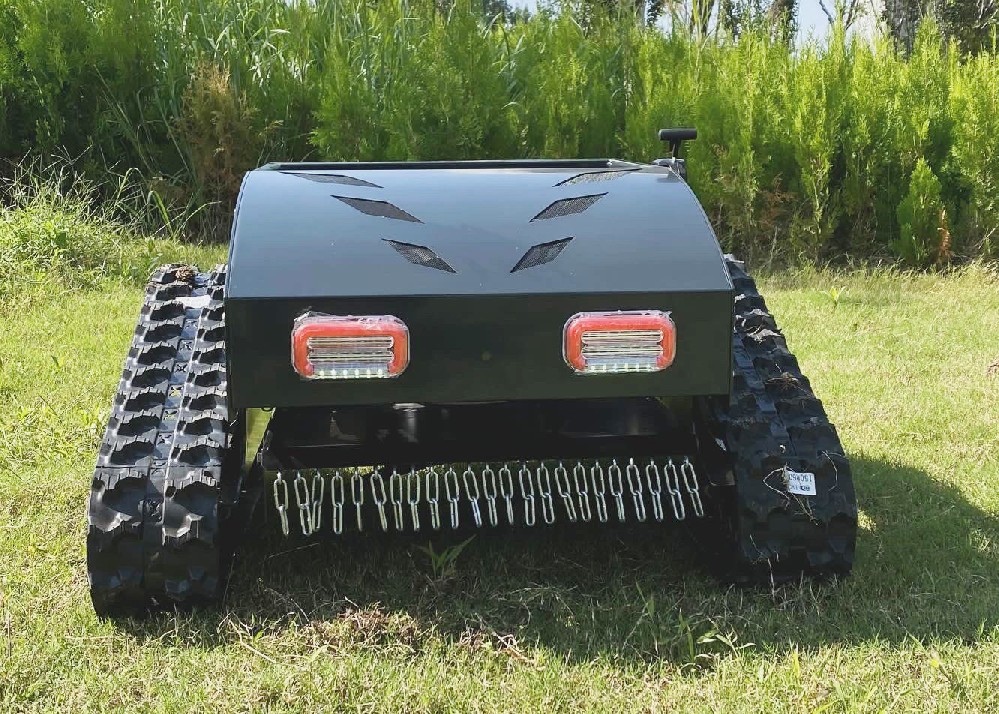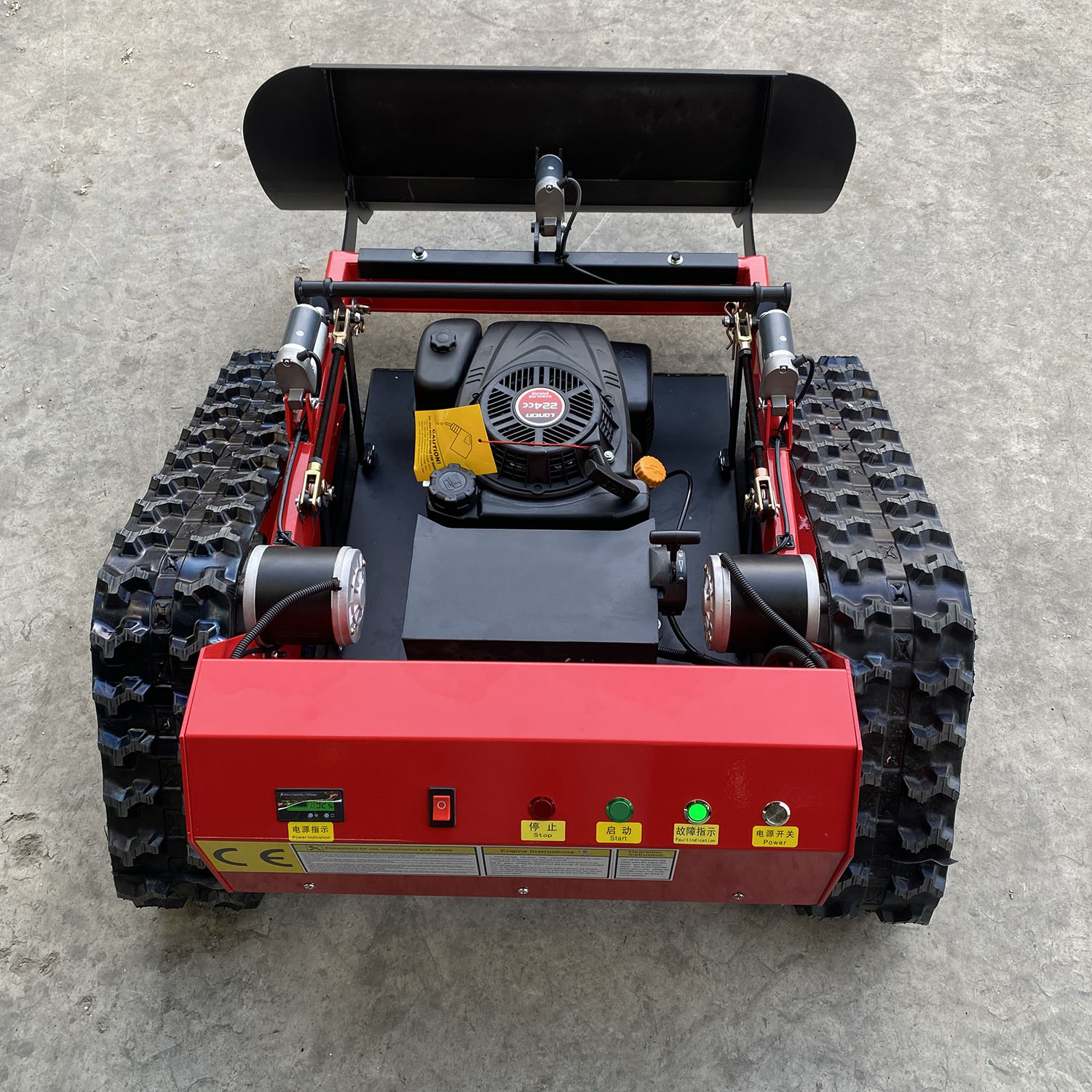How Electric Lawn Mowers Will Revolutionize the Gardening Industry in 2025?
With the growing awareness of environmental protection and technological advancements, electric lawn mowers are gradually replacing traditional gas-powered models and becoming the new favorite in the gardening industry. By 2025, electric lawn mowers will play an increasingly important role in the industry, driving it toward a greener, smarter future. This article will explore in detail how electric lawn mowers are changing the gardening industry, focusing on their environmental, cost-efficiency, intelligence, and adaptability advantages, as well as how they are transforming the industry.
1. Environmental Benefits: The Green Revolution of Electric Lawn Mowers
Traditional gas-powered lawn mowers not only produce noise but also emit harmful exhaust gases, contributing to environmental pollution. According to statistics, gas-powered lawn mowers can emit up to 300 grams of CO2 per hour, while electric lawn mowers produce zero emissions, making them environmentally friendly both during use and in the long term.
With stronger global environmental regulations, more consumers and businesses are turning to electric lawn mowers. These mowers not only meet green and sustainable standards but also help reduce air and noise pollution, creating a fresher and healthier environment for gardening work.
Key Environmental Benefits:
Zero Emissions: Electric lawn mowers do not use fuel, significantly reducing greenhouse gas emissions.
Low Noise Pollution: The noise level of electric lawn mowers is much lower, usually around 65 decibels, compared to the 90 decibels of traditional mowers, making them much quieter during operation.
No Exhaust Emissions: These mowers reduce the release of harmful substances like nitrogen oxides and hydrocarbons, contributing to better air quality.
2. Cost-Effectiveness: More Economical in the Long Run
Although the initial purchase cost of electric lawn mowers is generally higher than traditional gas-powered models, their long-term operational and maintenance costs are significantly lower. Traditional gas mowers require regular oil changes, air filter replacements, spark plug adjustments, and other maintenance tasks, all of which add up to higher maintenance costs. On the other hand, electric lawn mowers have a simpler structure and lower maintenance needs, and they do not require oil changes or regular engine maintenance.
Additionally, the cost of electricity is typically much lower than fuel costs, making electric mowers more economical over time. This is especially true for large gardening companies and public green space managers who need to use lawn mowers frequently.
Cost-Saving Factors:
Low Maintenance Costs: Electric mowers have fewer parts that require maintenance, resulting in lower overall maintenance costs.
Lower Energy Costs: The cost of electricity is much lower than that of gasoline, reducing operating expenses.
Reduced Failure Rates: Electric mowers have fewer mechanical components that can fail, making them more reliable in the long term.

3. Smart Features: Enhancing the Efficiency of Gardening Work
By 2025, electric lawn mowers will become more intelligent, integrating advanced technologies like sensors, GPS, and autonomous navigation. These innovations allow electric lawn mowers to automatically adjust to the condition of the lawn. For example, electric mowers can use built-in sensors to detect the growth status of the grass and automatically adjust cutting height and speed, preventing over-trimming or missed areas.
High-end models will also offer remote control and monitoring through mobile apps, allowing users to check the mower's status anytime and anywhere, as well as make adjustments remotely. Furthermore, autonomous navigation and path planning will enable electric mowers to intelligently navigate the lawn, further improving efficiency and reducing manual labor.
Smart Features:
Autonomous Navigation: Electric lawn mowers can automatically plan the most efficient route based on the surrounding environment, avoiding obstacles and ensuring that every inch of grass is cut.
Remote Control: Users can control the mower, monitor its status, and adjust settings through a smartphone or tablet app.
Smart Adjustments: The mower can automatically adjust cutting parameters based on the lawn's density and growth height, improving efficiency and ensuring a uniform cut.
4. High Adaptability: Efficient Mowing on Complex Terrain and Varied Climates
Electric lawn mowers are highly adaptable, capable of working efficiently in various complex terrains and climates. Whether it's a small urban garden, a private villa lawn, or a large public park, electric mowers can handle it all. They can automatically adjust to different grass species, growth conditions, and environmental factors, ensuring consistent results and high efficiency.
Some electric lawn mowers are even equipped with anti-tip and obstacle-avoidance systems, allowing them to work stably on uneven or sloped ground without tipping over or damaging the machine.
Adaptability Features:
Sloped and Uneven Terrain: Electric lawn mowers can handle different slope angles and uneven surfaces, ensuring uniform cutting across the lawn.
Multi-Grass Species Adaptation: These mowers can adjust cutting heights and methods based on different grass types, making them suitable for a variety of lawn environments.
All-Terrain Capabilities: Whether it's an urban garden or a large park, electric mowers can efficiently operate on various terrains.

5. Market Outlook: The Rapid Rise of Electric Lawn Mowers
By 2025, the market share of electric lawn mowers is expected to grow significantly. With continued advancements in technology, electric lawn mowers will become more powerful and affordable, enabling more consumers to make the switch. From homeowners to large commercial gardening companies, electric lawn mowers will become the mainstream choice, leading the industry toward a greener and smarter future.
Market Trends:
Growing Demand: As more homeowners and commercial users turn to electric lawn mowers, their market penetration will continue to increase, driven by rising environmental awareness.
Technological Advancements: Electric mowers will continue to improve in terms of intelligence and automation, enhancing user convenience and operational efficiency.
Green Development: With stronger environmental regulations, electric lawn mowers will become a dominant force in the industry, shifting the entire gardening sector towards sustainability.
Conclusion: Electric Lawn Mowers Leading the Future of the Gardening Industry
By 2025, electric lawn mowers will undoubtedly play a central role in revolutionizing the gardening industry. With their environmental, cost-efficient, intelligent, and highly adaptable features, electric mowers will reshape the way we approach lawn care. As technology continues to improve and market demand grows, electric lawn mowers will become the go-to tool, driving the gardening industry toward a more sustainable and intelligent future.
5. Get Your Personalized Solution Now
→ Call the selection hotline: (also supports accessory customization inquiries).









